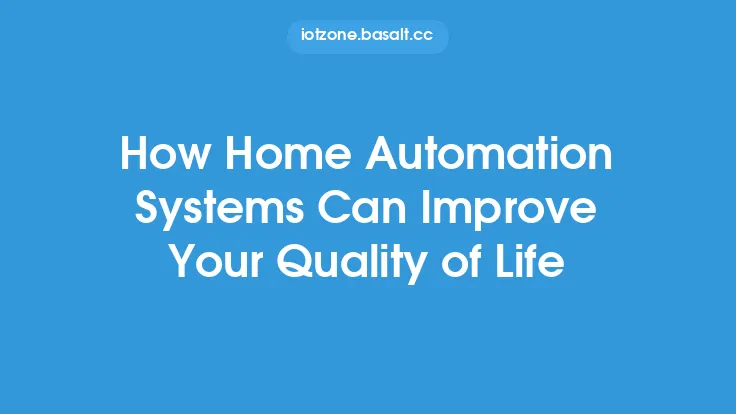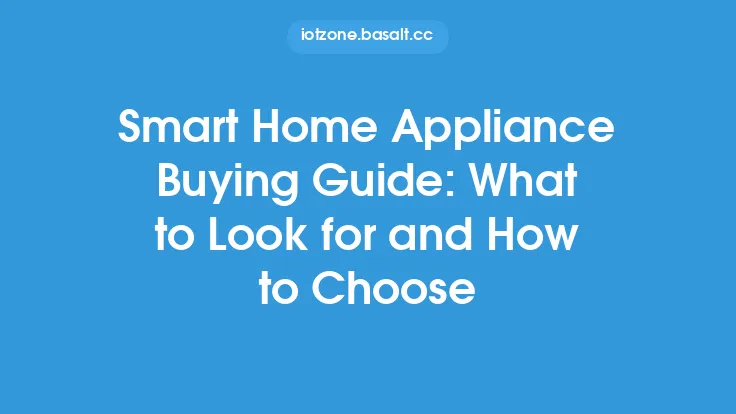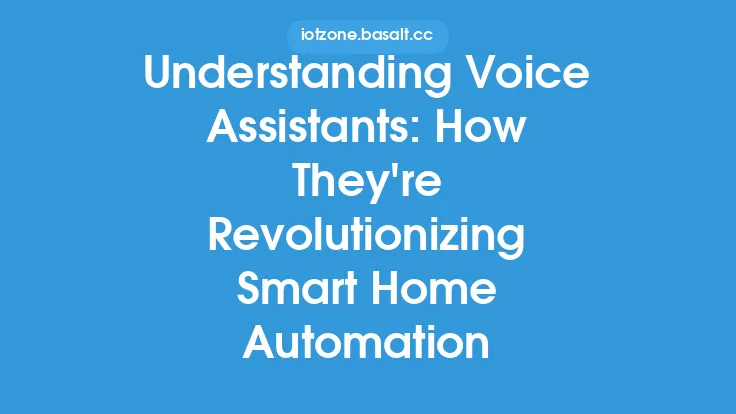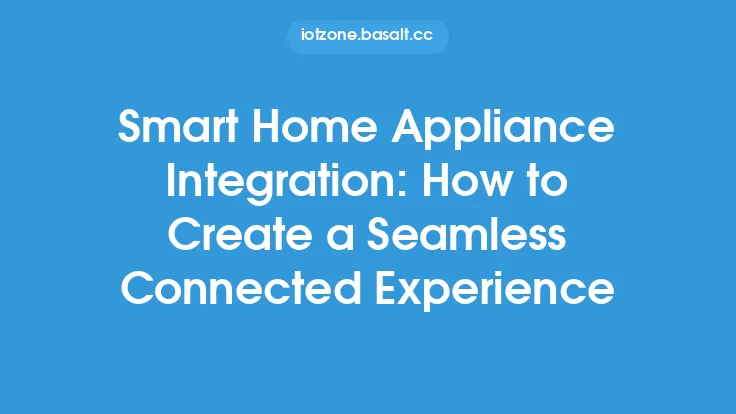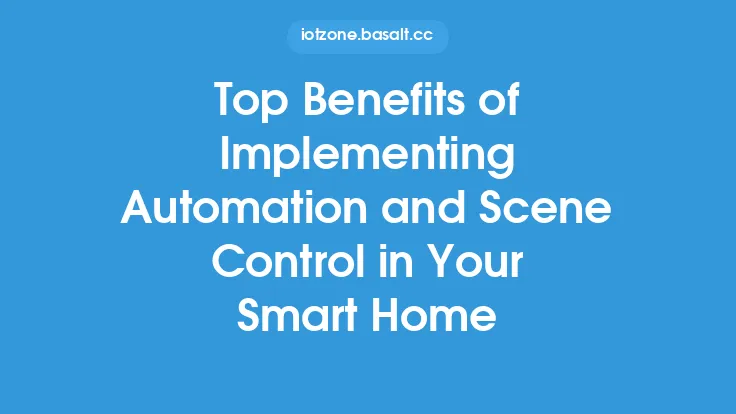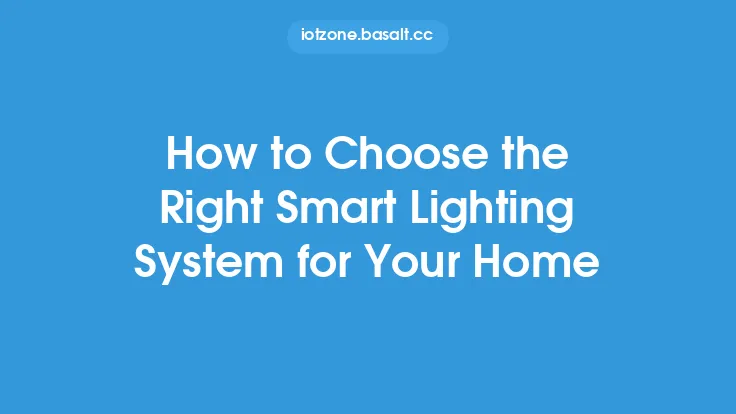The concept of smart home appliances has revolutionized the way we live and interact with our living spaces. By integrating advanced technologies such as artificial intelligence, Internet of Things (IoT), and machine learning, these appliances have made our daily routines more efficient, convenient, and enjoyable. In this article, we will delve into the world of smart home appliances and explore how they can improve our daily routines.
Introduction to Smart Home Appliances
Smart home appliances are designed to make our lives easier by automating various tasks, providing real-time feedback, and optimizing energy consumption. These appliances can be controlled remotely using smartphones, tablets, or voice assistants, allowing us to manage our homes from anywhere. From smart thermostats to smart refrigerators, these appliances are equipped with sensors, microcontrollers, and communication protocols that enable them to interact with other devices and systems.
How Smart Home Appliances Can Improve Daily Routines
Smart home appliances can improve our daily routines in numerous ways. For instance, smart coffee makers can be programmed to brew coffee at a specific time, ensuring that we have a fresh cup ready when we wake up. Smart lighting systems can be controlled to simulate a sunrise, helping us wake up more naturally. Smart home security systems can be integrated with door locks, cameras, and motion sensors to provide an additional layer of security and peace of mind. Moreover, smart home appliances can help us save energy and reduce our carbon footprint by optimizing energy consumption and providing real-time feedback on our energy usage.
Smart Home Appliance Automation
One of the key benefits of smart home appliances is automation. By automating various tasks, we can save time and reduce the likelihood of human error. For example, smart thermostats can learn our temperature preferences and adjust the temperature accordingly, ensuring that our homes are always comfortable. Smart vacuum cleaners can be programmed to clean our floors at specific times, keeping our homes clean and tidy. Smart home appliances can also be integrated with other systems, such as calendars and weather forecasts, to provide a more personalized and efficient experience.
Energy Efficiency and Smart Home Appliances
Smart home appliances are designed to be energy-efficient, which can help reduce our energy consumption and lower our utility bills. These appliances can be equipped with advanced sensors and algorithms that optimize energy usage, detect energy-wasting patterns, and provide real-time feedback on our energy consumption. For instance, smart refrigerators can be programmed to run during off-peak hours, reducing energy consumption and saving us money. Smart lighting systems can be controlled to turn off lights when not in use, reducing energy waste and prolonging the lifespan of our light bulbs.
Smart Home Appliance Integration and Compatibility
Smart home appliances can be integrated with other devices and systems, providing a seamless and connected experience. For example, smart speakers can be integrated with smart lighting systems, allowing us to control our lights using voice commands. Smart home security systems can be integrated with smart door locks, providing an additional layer of security and convenience. However, ensuring compatibility between different devices and systems can be a challenge. To address this issue, many manufacturers are adopting standardized communication protocols, such as Zigbee and Z-Wave, which enable devices from different manufacturers to communicate with each other seamlessly.
Technical Requirements and Considerations
When it comes to smart home appliances, there are several technical requirements and considerations that need to be taken into account. For instance, these appliances require a stable internet connection to function properly, which can be a challenge in areas with poor internet connectivity. Additionally, smart home appliances require regular software updates to ensure that they remain secure and functional. Moreover, the integration of smart home appliances with other devices and systems requires a thorough understanding of networking protocols, data encryption, and cybersecurity measures.
Security and Privacy Concerns
Smart home appliances can pose security and privacy concerns, particularly if they are not properly secured. For example, smart home security systems can be vulnerable to hacking, which can compromise our personal safety and security. Smart home appliances can also collect sensitive data, such as our daily routines and energy usage patterns, which can be used for targeted advertising or other malicious purposes. To address these concerns, manufacturers are implementing advanced security measures, such as encryption and secure authentication protocols, to protect our data and ensure the integrity of our smart home systems.
Conclusion and Future Developments
In conclusion, smart home appliances have the potential to revolutionize our daily routines, making them more efficient, convenient, and enjoyable. By automating various tasks, providing real-time feedback, and optimizing energy consumption, these appliances can help us save time, reduce our energy consumption, and improve our overall quality of life. As the technology continues to evolve, we can expect to see even more innovative and integrated smart home appliances that can learn our preferences, anticipate our needs, and provide a more personalized and seamless experience. With the increasing adoption of smart home appliances, it is essential to address the technical, security, and privacy concerns associated with these devices to ensure a safe and enjoyable smart home experience.
